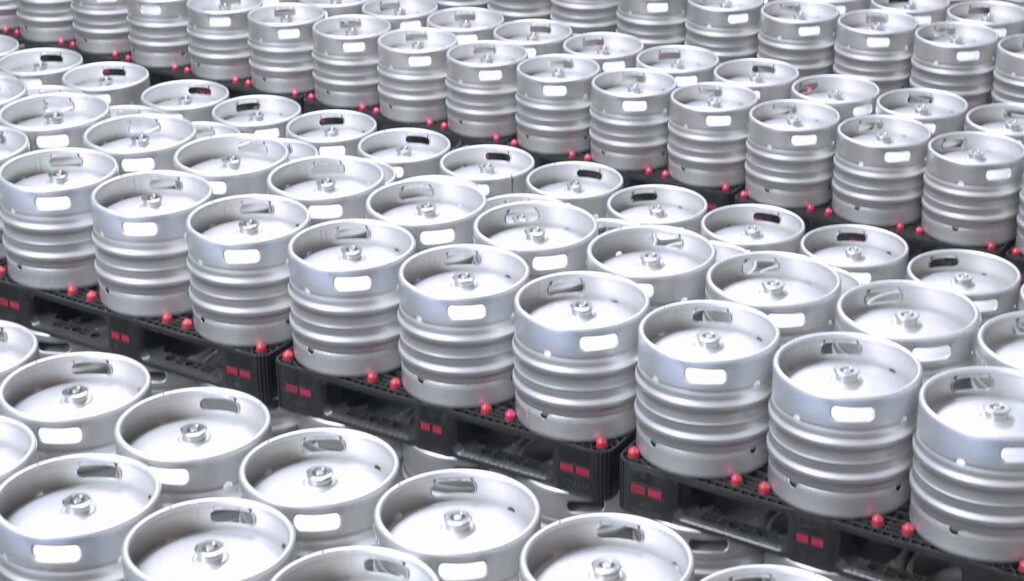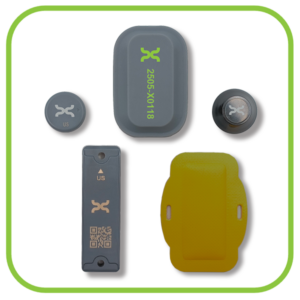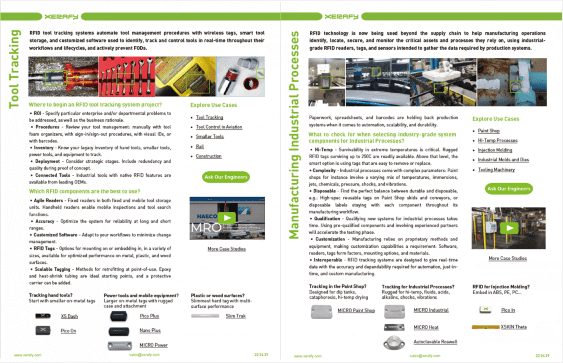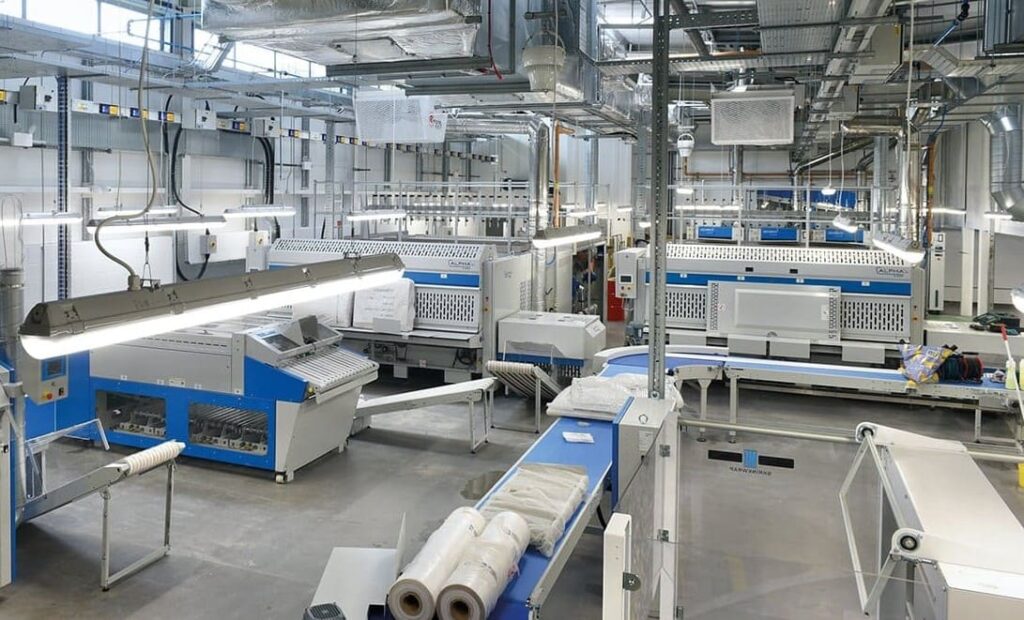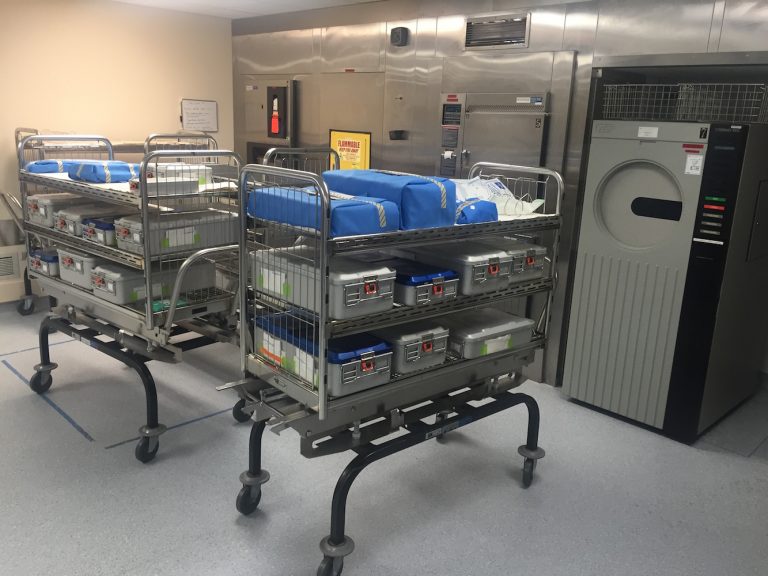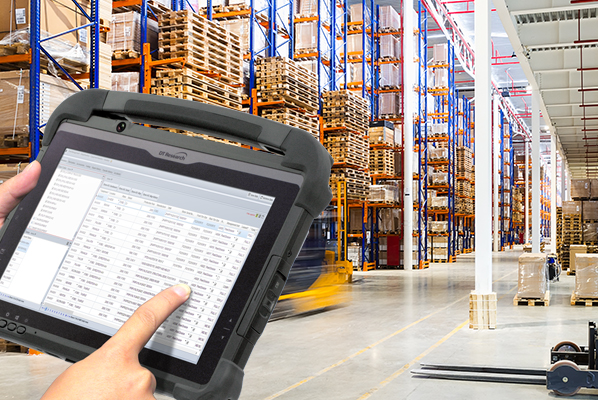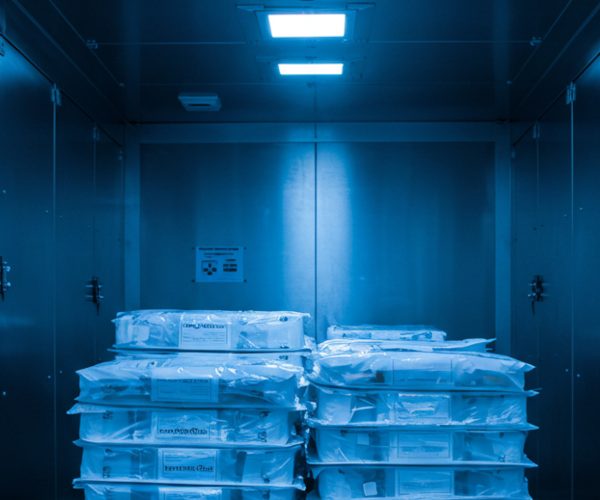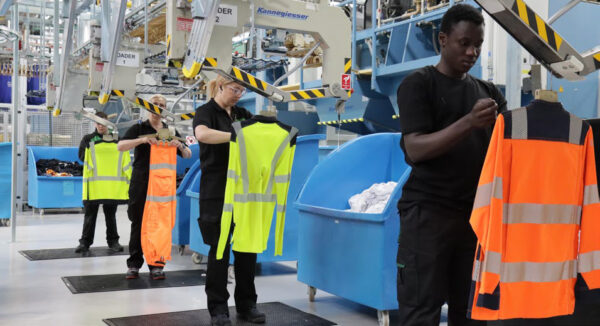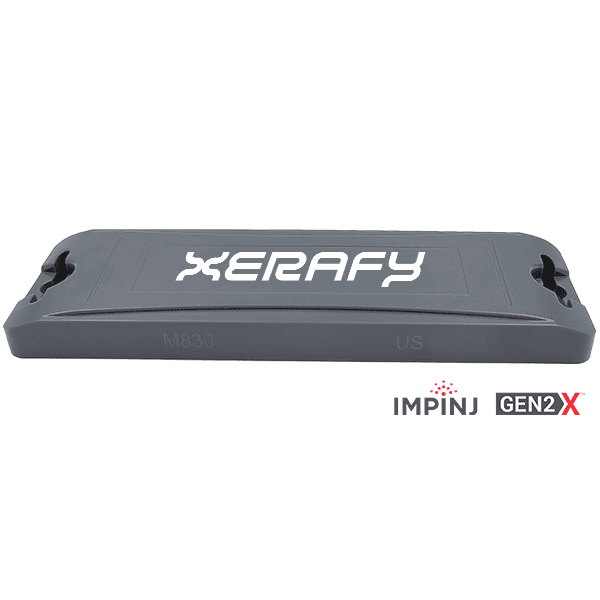Keg loss and poor supply chain visibility continue to erode margins and disrupt operations for breweries and distributors. Traditional tracking methods—manual logs and barcodes—lack the accuracy, speed, and traceability required to manage keg fleets at scale. Loss rates average 5% annually, with some breweries reporting up to 20%, leading to significant financial and operational impact.
RFID (Radio-Frequency Identification) offers a scalable, field-proven solution. By assigning each keg a unique digital identity, RFID enables real-time tracking across the entire lifecycle—from filling and distribution to return and reconditioning. Unlike barcodes, RFID supports automated, non-line-of-sight scanning and integrates seamlessly with ERP, inventory, and logistics systems.
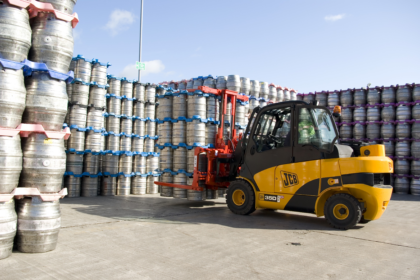
Breweries adopting RFID report up to 80% reductions in keg loss, faster workflows, and improved compliance. This white paper explores how RFID delivers measurable improvements in inventory control, fleet utilization, and supply chain sustainability—drawing on real-world applications and technical insights from the Xerafy engineering team.
Navigating Complexities in the Keg Supply Chain
Managing keg inventory poses a labyrinth of challenges for beer breweries and distributors. Common issues include keg loss, misplacement, and inefficient tracking.
On average, craft brewers lose about 5% of their keg fleet each year. This loss translates to a profit reduction of $10-15 per barrel of kegged beer annually. In some cases, breweries estimate their keg loss to be as high as 20% annually.
Source: The BevPros
This represents a financial loss and disrupts inventory management and production planning. Additionally, tracking keg maintenance and ensuring quality control are crucial. Without proper tracking, kegs may not undergo necessary cleaning and maintenance, compromising the quality of the beer.
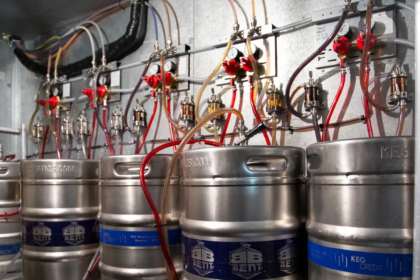
Breweries need to maintain a steady flow of kegs to meet demand, while distributors focus on efficient transportation. Pubs and restaurants rely on a consistent supply of quality beer. Each stakeholder faces unique challenges: breweries with inventory management, distributors with efficient transportation and tracking, and pubs with ensuring the beer’s quality and availability.
Traditionally, breweries have relied on manual tracking methods or simple barcoding systems. These methods, however, fall short of addressing the complexities of modern keg management. Manual tracking is labor-intensive and prone to human error. Barcodes, while a step forward, require line-of-sight scanning and struggle under the harsh conditions of transport and storage in the industry. They also fail to provide real-time tracking information and automation.
Why RFID Outperforms Barcodes in Keg Tracking
Barcodes brought a step forward from manual tracking—but they’ve reached their limits in the context of modern keg operations. Line-of-sight requirements, individual scanning, and poor durability under real-world handling conditions make barcodes increasingly impractical for breweries looking to scale efficiently.
RFID technology eliminates these pain points. With RFID, breweries gain real-time visibility into their keg fleet, automate tracking, and reduce losses—without slowing down operations.
RFID vs. Barcode: A Practical Comparison for Keg Management
| Feature | Barcodes | RFID |
|---|---|---|
| Scanning Method | Manual, one-at-a-time | Automatic, bulk reading |
| Line of Sight | Required | Not required |
| Durability | Prone to damage (scratches, dirt, condensation) | Designed for harsh environments (moisture, impact, temperature) |
| Speed & Efficiency | Labor-intensive, slow at scale | High-speed processing with minimal manual input |
| Real-Time Tracking | Not supported | Supported—live updates across supply chain |
| Data Capacity | Limited (ID only) | Flexible (ID, fill date, maintenance, location history, etc.) |
| Integration Potential | Basic systems only | Seamless ERP, WMS, and mobile app integration |
| Loss Prevention | Limited visibility into missing kegs | Full traceability reduces loss rates by up to 80% |
Breweries moving from barcodes to RFID report faster workflows, improved compliance, and better control of their reusable assets. For operations managing hundreds or thousands of kegs, RFID is no longer a nice-to-have—it’s an essential upgrade for modern fleet management.
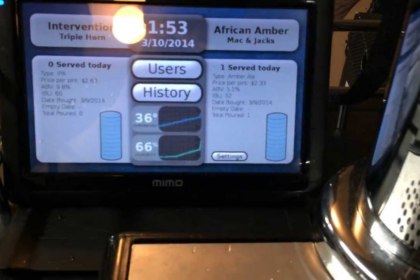
RFID Software Ecosystem for Breweries
The value of RFID lies not only in the tags and readers but in the software ecosystem that turns raw data into operational insight and control. For breweries, this means transforming how keg fleets are tracked, managed, and optimized—without disrupting existing workflows.
Modern RFID keg tracking systems integrate directly into brewery operations, capturing every step in the keg lifecycle: filling, shipping, delivery, return, and cleaning. With real-time visibility and automated updates, breweries can reduce manual work, improve asset utilization, and ensure regulatory compliance.
Core Capabilities for Brewery Operations
Automated Lifecycle Tracking
RFID tags allow kegs to be scanned in bulk—without line of sight—at every key stage. Each event is logged automatically, maintaining a complete digital history of every keg in the fleet.ERP and Inventory Integration
Keg status is updated in real time within existing RFID stock management or ERP systems, enabling accurate forecasting, reducing stock discrepancies, and supporting just-in-time production models.Logistics Coordination
RFID data streamlines outbound and inbound logistics by notifying teams when kegs are ready for pickup, improving load accuracy, and giving drivers access to live keg data via mobile devices.Cleaning and Maintenance Compliance
Cleaning cycles and maintenance records are tracked automatically, helping breweries maintain hygiene standards and pass audits with confidence.Idle Keg Optimization
Analytics tools identify slow-moving or idle kegs in the field, allowing breweries to reduce fleet size, accelerate returns, and cut losses.Data-Driven Decision Making
Real-time dashboards and reporting tools deliver insights into keg utilization, turnaround times, and loss patterns, helping breweries continuously refine their operations.
These software platforms are built to scale and can be deployed on-premise or in the cloud. They are designed to work alongside existing workflows, supporting everything from craft brewers managing their own fleets to larger operations with integrated logistics and distribution systems.
Industry Snapshot: RFID-Enabled Keg Solutions
Several companies in the keg rental and logistics space have adopted RFID and IoT tracking technologies to digitize keg management:
Konvoy Kegs offers RFID-enabled keg rentals with flat-rate pricing, location tracking, and flexible short- or long-term options.
Microstar Logistics provides smart stainless-steel kegs equipped with IoT tracking for real-time monitoring of location, cleaning, and fill status.
BevPros KegFlee uses barcode-based KegID tracking to offer intelligent keg leasing services for breweries seeking simple outsourced solutions.
These examples reflect the broader shift in the brewing industry toward connected, data-driven keg operations—whether through third-party providers or internal fleet management with RFID systems.
Integrating RFID Systems Into Brewery Operations
Implementing RFID for keg tracking goes beyond tagging assets—it requires designing a system that fits the brewery’s operational flow, infrastructure, and logistics priorities.
Key Components of a Keg RFID System
A typical setup includes:
RFID Tags: Attached to each keg, storing a unique digital ID and other data (e.g., fill date, cleaning history).
RFID Readers and Antennas: Installed at strategic locations (e.g., filling stations, loading docks, return points) to detect tags as kegs pass by.
Signal Repeaters (if needed): Extend coverage in large facilities or areas with obstructions.
Software Integration: Connects RFID data to inventory, ERP, and logistics systems for live updates and process automation.
Brewery Setup Example
In a brewery, RFID readers might be placed at exit gates to log outbound shipments, at return bays to record keg intake, and at cleaning stations to confirm sanitization cycles. As kegs move through each checkpoint, their status is automatically updated—no manual scanning required.
Integration Considerations
Deploying an RFID system requires more than installing hardware. It involves:
Retrofitting existing kegs with durable RFID tags
Training staff on new workflows and software
Mapping key tracking points in the production and distribution process
Enabling data capture in business systems, e.g., RFID WMS, ERP, etc.
The system must be tailored to the brewery’s size, complexity, and keg turnover rate.
Technical Requirements That Matter
UHF Frequency: Preferred for its long read range and ability to scan multiple kegs simultaneously.
Tag Durability: Must withstand washing, transport, stacking, and temperature changes.
Data Storage & Compliance: Tags may need extra memory or regulatory compliance if used across borders.
A brewery operating internationally, for example, may require globally compliant tags with expanded memory for multi-system traceability.
Choosing the Right RFID Tags for Your Keg Fleet
Beer kegs endure tough conditions: frequent handling, industrial washing, high humidity, and temperature swings. Not all RFID tags for inventory can withstand this environment—selecting the right tag is critical to long-term tracking performance.
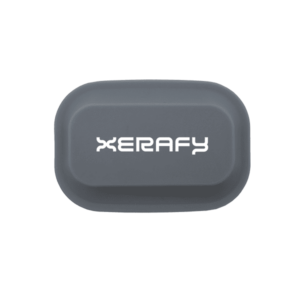
Durable UHF RFID tags like the bendable Xylinder OUT are specifically designed to fit on metal kegs.
Xerafy develops RFID tags specifically for stainless steel kegs, engineered to maintain read reliability throughout thousands of cycles. Tags like the flexible Xylinder OUT are built for direct attachment to curved metal surfaces and can handle the rigors of daily brewery operations.
Selecting the Right RFID Tags for Brewery Environments
Metal Compatibility
Optimized for stainless steel surfaces, ensuring strong RF signal performance—even on curved or reflective kegs.Industrial Durability
Resistant to abrasion, impact, caustic cleaning agents, and pressure washing.Low-Profile Form Factor
Slim designs that don’t interfere with stacking, labeling, or branding.Flexible Mounting Options
Supports adhesive bonding, riveting, or welding—adaptable to retrofit or OEM installations.Lifecycle Data Capture
Each tag supports a unique ID and can store information like fill date, cleaning records, and usage history, enabling full item-level traceability.
Whether applied to an existing fleet or integrated into new kegs, these tags deliver consistent, long-range read performance—ensuring seamless operation within automated brewery systems.
Evaluate performance, fit, and installation methods in your own brewery setup: The RFID Test Pack includes sample tags, mounting options, and access to engineering support for your evaluation.
Next Steps: Is It Time to Rethink Your Keg Management?
RFID technology is already helping breweries reduce keg loss, streamline operations, and improve compliance. From small craft producers to large-scale operations, it’s transforming keg tracking into a fast, automated, and data-driven process.
If you’re dealing with recurring keg losses, unreliable inventory data, or manual tracking bottlenecks, it may be time to evaluate your current system.
The Xerafy engineering team has helped breweries implement tailored RFID solutions that integrate seamlessly into existing workflows—delivering real-time visibility, greater efficiency, and long-term cost savings.
Start by estimating your annual keg loss rate. Or schedule a call with our engineering team to see if RFID tracking is right for your operation.
Xerafy is a pioneer in RFID for industrial applications, bringing to market several innovations that enable advanced identification and automation capabilities.
In addition to a complete range of field-proven RFID tags available off-the-shelf, Xerafy offers Custom RFID Tags services, covering everything from a personalization service bureau to custom-design engineering capabilities.
